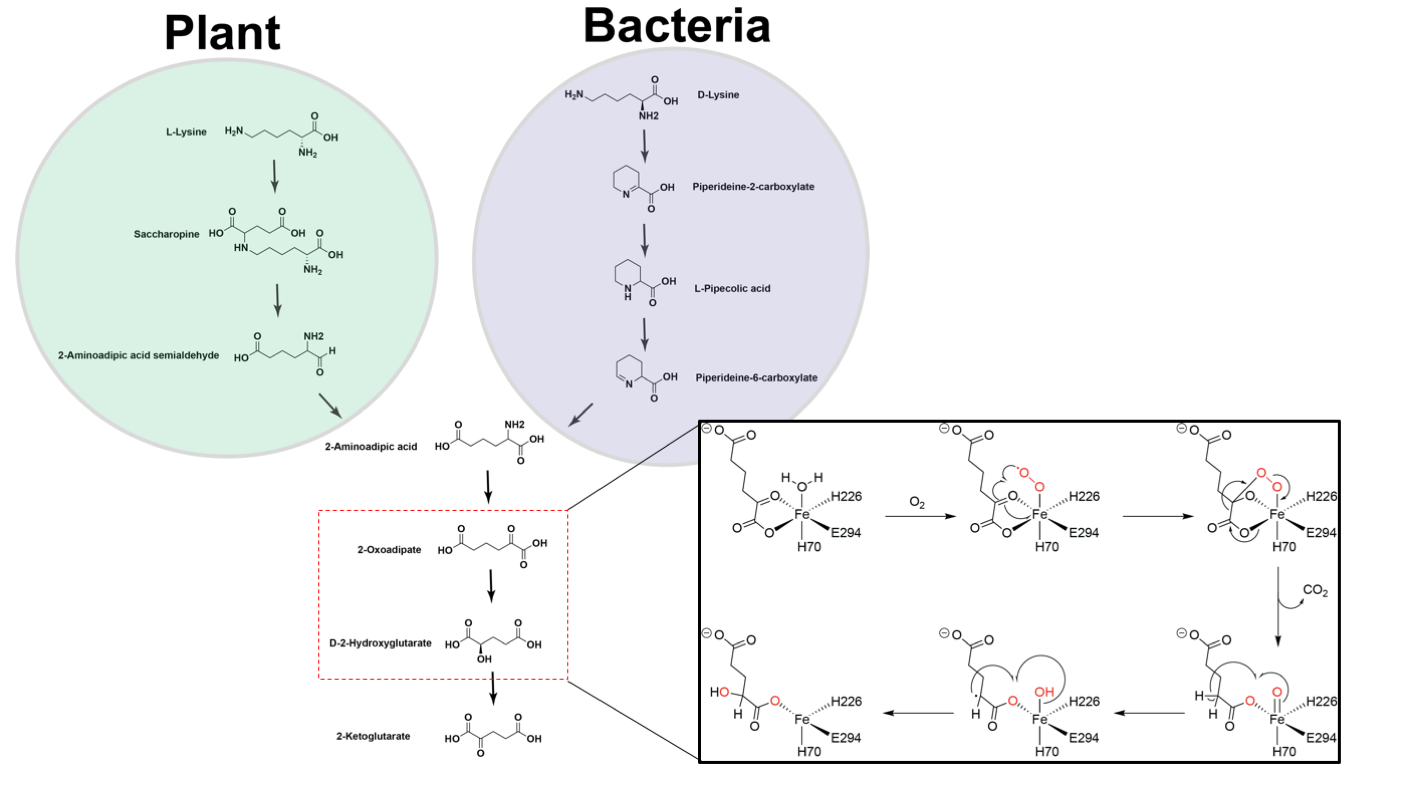Lysine is an important amino acid that must be supplied in our diets, as our bodies can’t produce lysine on their own. Most cereal grains have low levels of lysine, and scientists have worked to breed crops with higher lysine levels.

Ribbon diagram of the enzyme, hydroxyglutarate synthase (HglS), that gave insight into the mechanism of lysine catabolism. Data were collected in the Berkeley Center for Structural Biology at the Advanced Light Source (ALS).
However, the biochemical processes that break down lysine in plants weren’t fully understood. New Joint BioEnergy Institute (JBEI) research, published in Nature Communications, reveals this last missing step of lysine catabolism.
“With this final piece in place, we hope that future efforts to engineer lysine catabolism in plants will be done with a better understanding of potential changes in global metabolism,” said Mitchell Thompson, one of the study’s co-first authors and a postdoctoral researcher at JBEI.
Read the full JBEI story and the ALS Science Brief.




